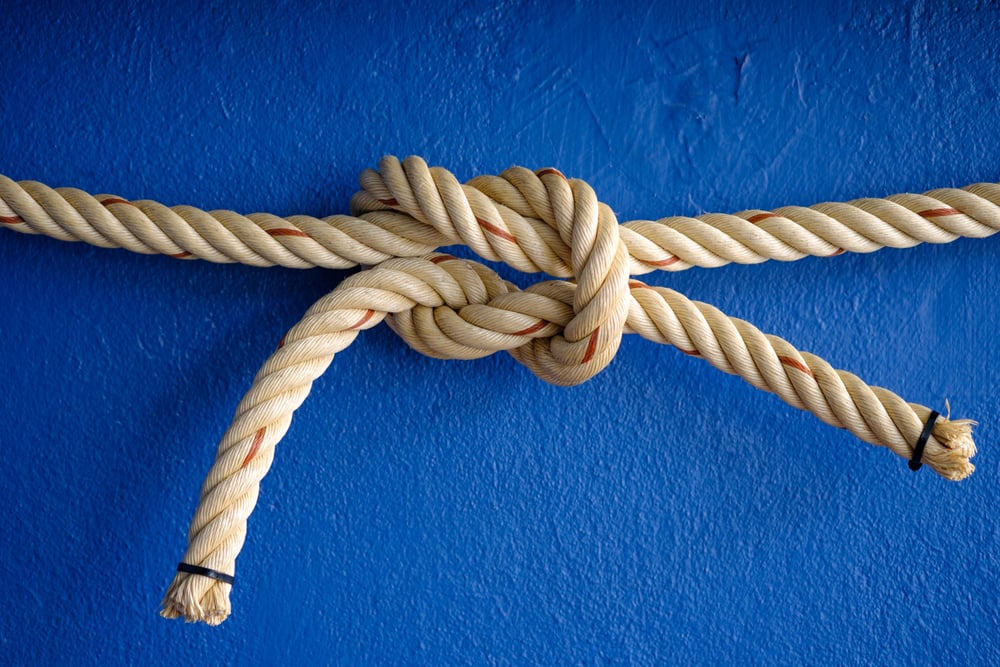Knot Basics – A Fisherman's Best
Friends
Imagine fishing knots as
the secret handshakes of the fishing world. Before we dive into the good stuff,
let's cover the basics:
Why are knots important in fishing?
Knots are like the glue
that holds your fishing gear together. They make sure your hooks, lures, and
other tackles stay connected, so you do not lose the big one when it bites. Fishing
knots are often regarded as the weakest point on the line where the line is
likely to break first.
Without good knots, your
fishing adventure can quickly turn from an entertaining one into a saddening
one, potentially resulting in your lunch meal slipping away.
What makes a knot "the
one"?
In our view, a knot
becomes "the one" when it's strong and reliable. For some, they also
factor in the easiness of tying the knot. However, we consider such a factor to
play an insignificant role, especially when considering the potential associated
risks.
A good fishing knot is
like having a trustworthy friend on your fishing trip. You want a knot that will
not let you down, even when you hook a giant!
Picking the right knot for the job is
like choosing the right tool for the task.
Imagine you have a
toolbox, and each knot is like a different tool. You wouldn't use a hammer to
screw in a nail, right? In the same way, you need to pick the right knot for
the purpose you wish to achieve. The two knots addressed in this blog have a
completely different scope and, hence, are not alternatives that can be switched
in between.
Meet Your Knot Stars
The Palomar Knot:
The Palomar knot is the
life of the fishing party! It is simple and strong, perfect for connecting a fluorocarbon
fishing line to hooks, lures, snap-locks, and swivels. The main distinguishing
feature of this knot is that it secures the tied item with a double line rather
than a single line, therefore doubling the strength of the knot.
The FG Knot:
The FG knot is the holy
fishing knot for tying a braided line to a fluorocarbon line. Loved by
professionals, the FG knot is an extremely reliable knot that is not likely to
fail before the connected lines themselves break. The term “FG Knot” stands for
“Fine Grip Knot” because of how strong the braided line digs into the
fluorocarbon line to “grip” it. The GF knot is also the best knot for a casting
setup, as the knot does not get stuck in the rings of the fishing rod.
The main disadvantage of
the FG knot is that it can take a lot of practice to master, and takes a
considerably longer time to tie compared to other relevant knots.
Let's Dance – Tying the Palomar Knot
- Double your fishing line to create a
loop.
- Swing the loop through the eye of
your hook, lure, swivel, or snap-lock.
- Tie a simple knot with the loop,
going through the eye of the hook.
- Push the tied item through the loop
referred to above.
- Lick the knot or use water to avoid
damaging the line from the friction’s heat.
- Pull both ends tight and trim the
extra line.
YouTube video on tying the
Palomar Knot.
Let's Dance – Tying the FG Knot
- Overlap the end of your leader and
your braided line.
- Start wrapping the braided line
around the leader. Make around 20 tight wraps – the more, the merrier!
- Tie a few half-hitch knots using the
braided line’s free end, a few times on both the leader and braided line and
then a few times on the braider line only.
- Lick the knot or use water to avoid
damaging the line from the friction’s heat.
- Pull the leader and the main braided
line hard enough for the braided line to dig into the leader line (you will
notice the knot becoming darker in color and feeling harder to the touch).
- Trim the extras.
YouTube video on
tying the FG Knot.
Time to Celebrate
In conclusion, the Palomar
Knot and the FG Knot are like the “Batman and Robin” of fishing knots. They
each have their unique features, and knowing them will make your fishing
adventures super exciting. So go out, practice these knots, and let the fishing
fun begin!
